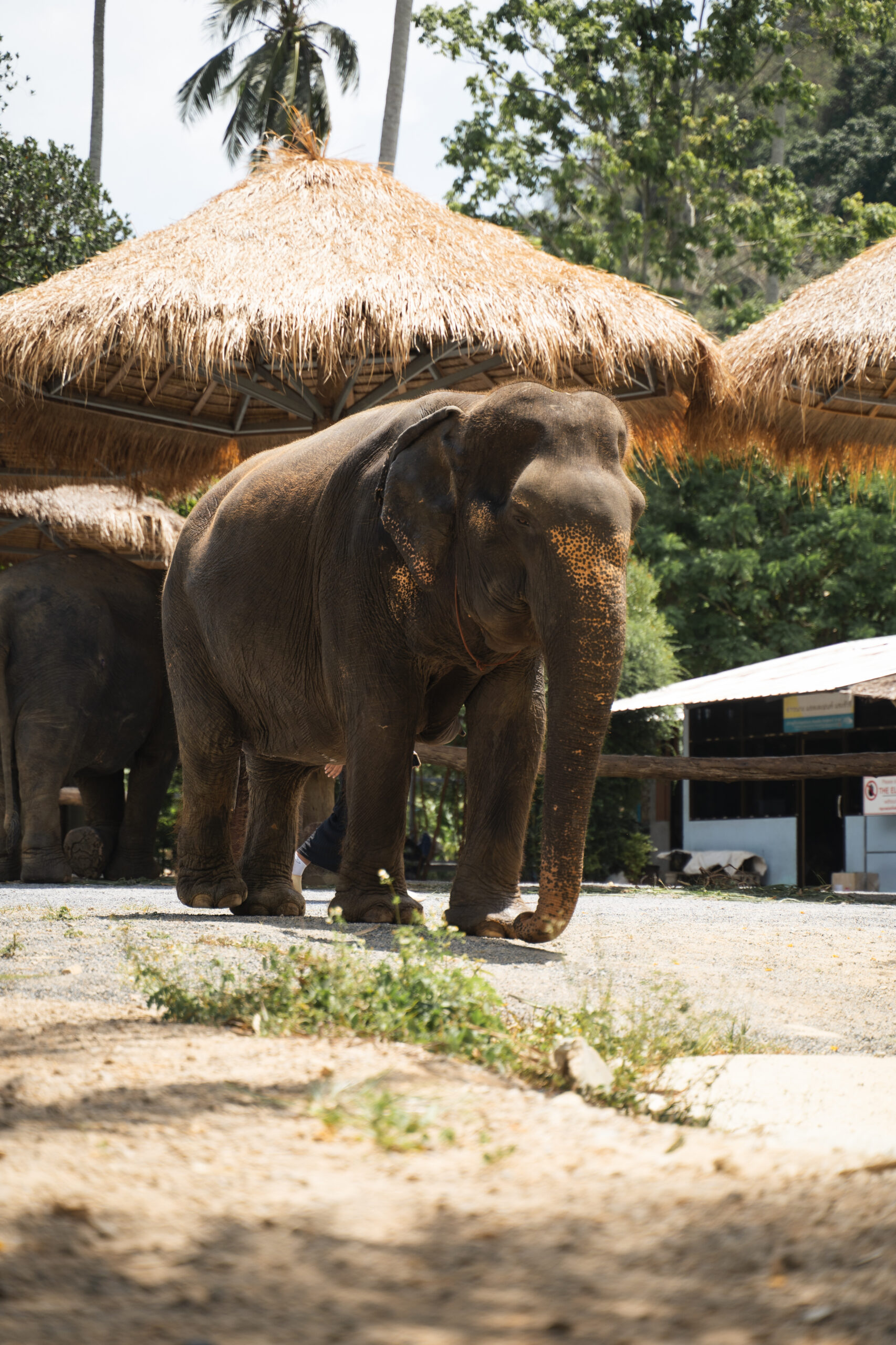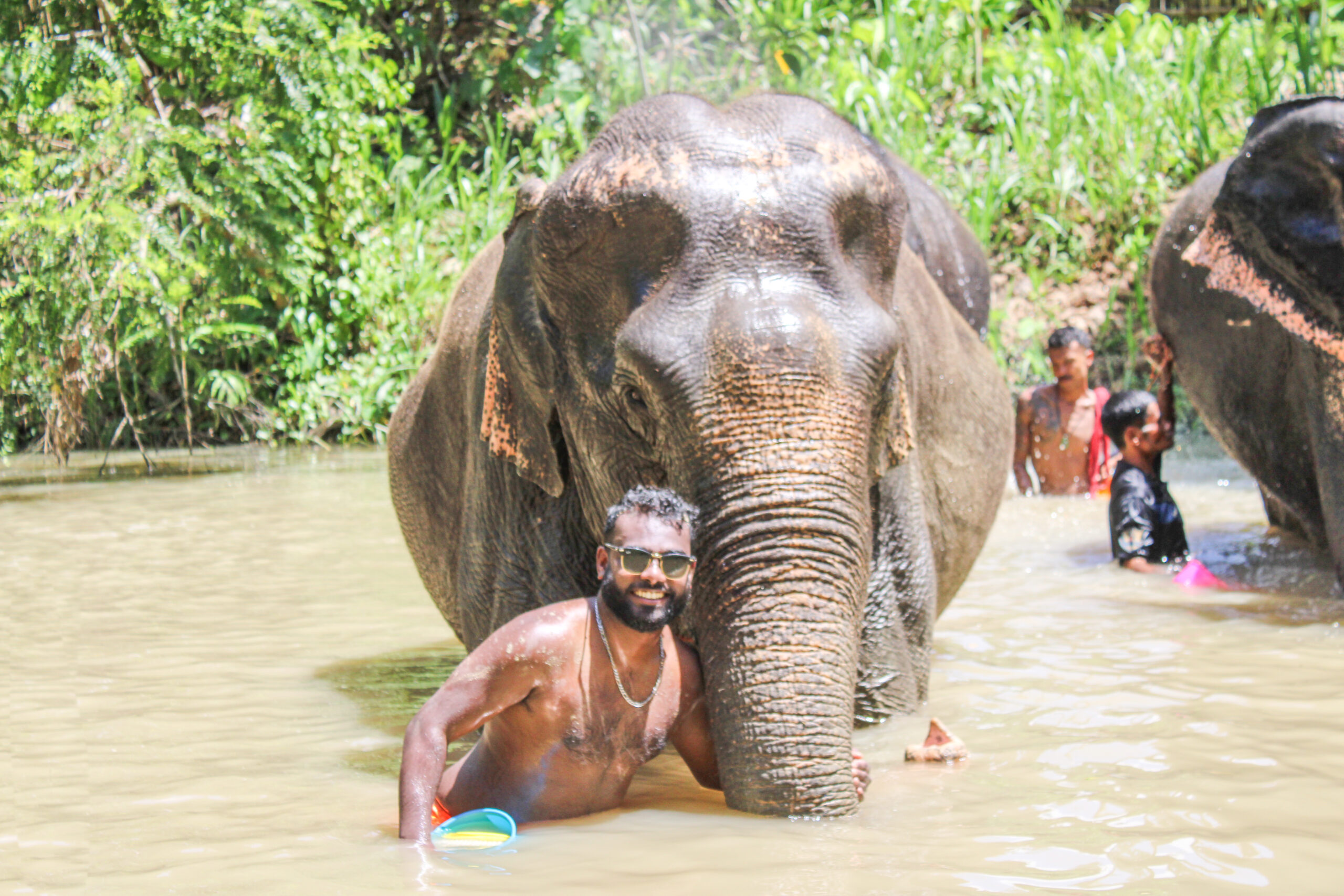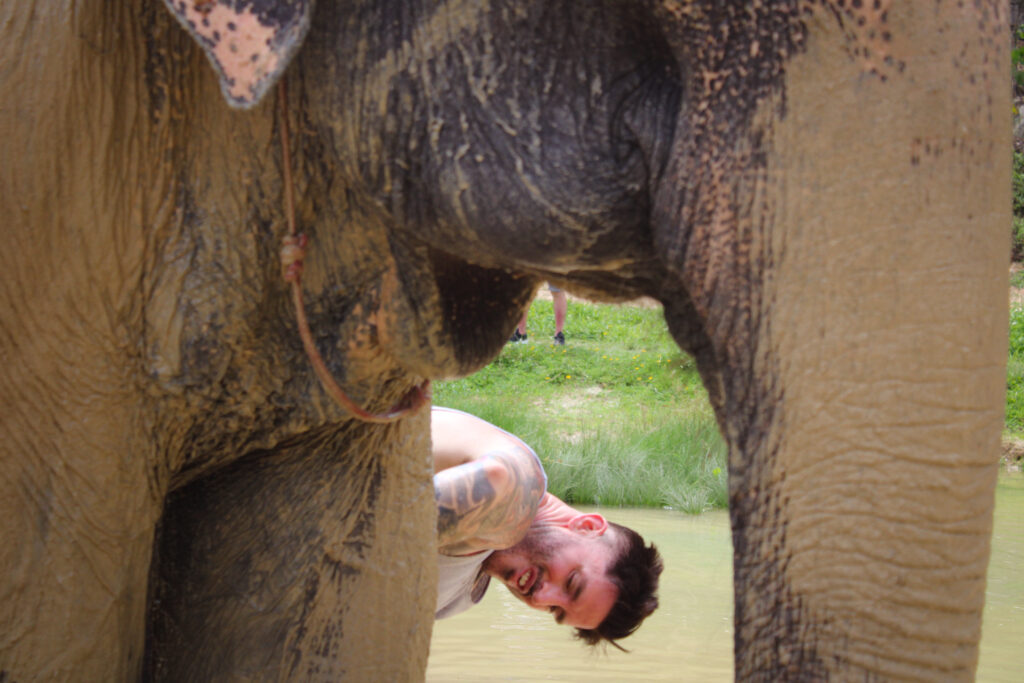Thailand has long been admired for its rich cultural heritage, with one symbol standing out among the rest – the mighty elephant. Regarded as a beloved pachyderm in Thai society, these gentle giants are deeply ingrained in the country’s traditions and customs. From their depiction in art and literature to their prominent role in festivals and ceremonies, the elephant holds a special place in the hearts of the Thai people.
For centuries, elephants have been a symbol of strength, power, and wisdom in Thai civilization. They were not only used as war machines in battles but also revered as sacred beings. As time passed, the role of elephants evolved to become more than just work animals; they became an integral part of Thai religion and spirituality.
The Ancient Bond Elephants and Thai Civilization
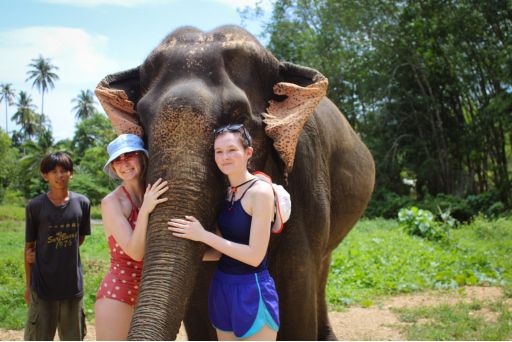
Thai civilization has had a deep and longstanding connection with elephants. These majestic creatures have played a significant role in shaping the country’s cultural identity and heritage. From ancient times to modern-day, elephants have been cherished and revered by the Thai people.
Elephants were not only essential in transportation and labor but also played a vital role in warfare. Their size, strength, and intelligence made them formidable allies in battle. But as Thai civilization evolved, so did the role of elephants. They gradually transitioned from being war machines to sacred beings, deeply intertwined with religious and spiritual beliefs. Today, elephants hold a symbolic significance in Thai religion and are considered sacred creatures by many. The profound bond between elephants and Thai civilization is a testament to the enduring connection and respect the Thai people have for these magnificent creatures.
From War Machines to Sacred Beings The Evolution of the Elephant’s Role
Elephants have a long and storied history in Thai civilization. Once used as powerful war machines, these majestic creatures have undergone a remarkable evolution in their role within society. Over the years, they transitioned from instruments of destruction to sacred beings that are revered and worshipped.
In ancient times, elephants played a crucial role in battles, their sheer size and strength making them formidable adversaries on the battlefield. These massive creatures were trained to carry soldiers and supplies, as well as to charge at enemy forces, wreaking havoc in their wake. However, as society evolved and warfare became less prevalent, the significance of elephants shifted towards spiritual and religious realms.
Today, elephants are considered sacred beings in Thai culture, with a symbolic significance deeply rooted in religion and spirituality. They are often associated with the Hindu deity Lord Ganesha, who is revered as the remover of obstacles and the bringer of good fortune. Elephants can be found depicted in temples, shrines, and religious artwork throughout Thailand, symbolizing wisdom, strength, and prosperity. Their presence in these sacred spaces is a testament to the transformation of their role from war machines to revered spiritual figures.
The Elephant’s Symbolic Significance in Thai Religion and Spirituality
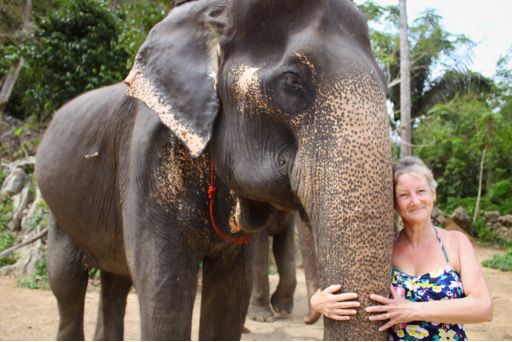
Elephants hold a deep symbolic significance in the religious and spiritual beliefs of the Thai people. Revered as sacred animals, they are seen as embodiments of power, wisdom, and protection. In Thai Buddhism, the white elephant, known as Chang Phueak, is considered an auspicious and divine creature. It is believed to be a spiritual being that bestowed kings with their legitimacy and power.
Furthermore, elephants are also associated with the Hindu god Indra, the ruler of the heavens and the lord of rain. In Thai mythology, Indra is depicted riding on the back of an elephant named Erawan, who has multiple heads and embodies immense strength. This imagery symbolizes the connection between the divine world and earthly realm, emphasizing the elephant’s role as a celestial and benevolent force. The presence of elephant statues and sculptures in temples and shrines across Thailand further attests to their profound spiritual importance in the country’s religious practices.
The Majestic Thai Elephant An Important Figure in Festivals and Ceremonies
Elephants hold a significant place in Thailand’s festivals and ceremonies, showcasing their majestic presence and revered status in the country. During the famous Songkran festival, elephants are lavishly adorned with colorful garments and paraded through the streets. As they march gracefully, water is sprayed upon them, marking the traditional Thai New Year celebrations. This ritual symbolizes blessings for good fortune and prosperity.
In addition to Songkran, elephants play a special role in other religious ceremonies as well. During the Loi Krathong festival, small boats made of banana leaves and decorated with flowers and candles are released into the water. These boats are often carried on the backs of elephants, making them a focal point of the event. The tranquil sight of these gentle giants carrying the illuminated Krathongs adds an enchanting touch to the spiritual atmosphere.
Elephant Conservation Efforts Preserving Thailand’s Natural Heritage
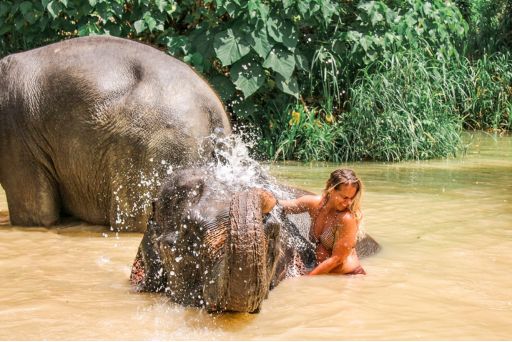
Thailand’s natural heritage is home to some of the world’s most majestic creatures, and at the heart of this rich ecosystem is the beloved Thai elephant. Recognizing the significance of preserving this iconic species, the country has made considerable efforts in elephant conservation. With dedicated organizations and passionate individuals working tirelessly, Thailand is committed to safeguarding the future of these magnificent creatures.
There is a multipronged approach to elephant conservation in Thailand. One aspect focuses on creating protected areas, such as national parks and wildlife reserves, where elephants can thrive in their natural habitat. These protected areas serve as vital sanctuaries for elephants to roam freely, ensuring their safety and promoting biodiversity. Additionally, conservation efforts extend to addressing the key challenges that elephants face, such as poaching and habitat loss. Through public awareness campaigns and stringent laws against illegal activities, Thailand aims to combat these threats and preserve the natural heritage that the elephants represent.
Elephant Tourism in Thailand Balancing Economic Opportunities and Ethical Concerns
Elephant tourism in Thailand has become a significant contributor to the country’s economy. As tourists flock to experience riding and interacting with these majestic creatures, local businesses thrive, providing employment opportunities and generating income. Moreover, the revenue generated through elephant tourism contributes to the overall development of communities and supports other industries such as hospitality and transportation.
However, the rise in popularity of elephant tourism has also raised concerns about the ethics surrounding this industry. Animal welfare organizations argue that many elephants used for tourism purposes are subject to cruel treatment, including harsh training methods and inadequate living conditions. There have been reports of elephants being overworked, chained for long hours, and deprived of proper nutrition and healthcare. These practices not only compromise the well-being of the elephants but also have a detrimental impact on their physical and mental health. As the ethical concerns surrounding elephant tourism gain traction, there is a growing demand for more responsible and sustainable tourism practices that prioritize the welfare of these gentle giants.
Elephant Art and Craftsmanship A Reflection of Thai Creativity and Skill
Thai creativity and craftsmanship can be witnessed in the vibrant art and unique craftsmanship that revolves around elephants in Thailand. These majestic creatures have become a symbol of creativity and skill for artists and craftsmen throughout the country. From intricate elephant wood carvings to colorful elephant paintings, the artistry involved is both awe-inspiring and reflective of Thailand’s rich cultural heritage.
Thailand is known for its talented artisans who masterfully create intricate elephant sculptures out of various materials such as wood, silver, and clay. These sculptures often depict elephants in different poses, adorned with traditional Thai motifs and patterns. The attention to detail and precision in these artworks is a testament to the skill and creativity of the craftsmen. Additionally, elephant paintings are another form of art that showcases the talent of Thai artists. These paintings often feature elephants in vivid colors, capturing their grace and strength. The blending of colors and brushstrokes reflect the artistic flair and passion of the Thai painters.
Thai creativity and skill can be witnessed not only in the artistry surrounding elephants but also in the craftsmanship of various elephant-themed products. From intricately embroidered elephant tapestries to finely crafted elephant-shaped jewelry, these handmade creations showcase the versatility of Thai craftsmanship. The use of traditional techniques combined with modern design concepts results in exquisite pieces that are not only beautiful but also meaningful. These crafts not only provide livelihoods for artisans but also serve as a way to preserve and promote Thailand’s rich cultural heritage.
In conclusion, the art and craftsmanship revolving around elephants in Thailand are a true reflection of the country’s creativity and skill. From the intricate wood carvings to the vibrant paintings, these artworks showcase the talent and passion of Thai artists. The craftsmanship involved in creating elephant-themed products further highlights the versatility of Thai artisans. By preserving and promoting these artistic traditions, Thailand continues to honor its cultural heritage and captivate the world with its creativity and skill.
Frequently Asked Questions
Why are elephants considered an icon of Thai cultural heritage?
Elephants hold a special place in Thai culture due to their historical significance, close bond with Thai civilization, and their portrayal in various art forms and traditions.
What is the ancient relationship between elephants and Thai civilization?
Elephants have been an integral part of Thai civilization for centuries, serving as war machines, transportation, and symbols of power and royalty.
How has the role of elephants evolved over time in Thailand?
From being used as war machines in ancient times, elephants are now considered sacred beings and are highly revered in Thai society.
What is the symbolic significance of elephants in Thai religion and spirituality?
Elephants are seen as symbols of good luck, strength, and wisdom in Thai religion and spirituality. They are often associated with deities and are part of important religious rituals.
How are elephants involved in festivals and ceremonies in Thailand?
Elephants play a significant role in various festivals and ceremonies in Thailand, such as the famous Elephant Festival in Surin, where they showcase their skills, participate in parades, and entertain the crowds.
What efforts are being made to conserve elephants in Thailand?
Thailand is committed to preserving its natural heritage by implementing elephant conservation efforts, including creating protected habitats, promoting responsible tourism, and supporting rescue and rehabilitation centers.
How does elephant tourism in Thailand balance economic opportunities and ethical concerns?
Elephant tourism in Thailand aims to strike a balance between providing economic opportunities for local communities and ensuring ethical treatment and conservation of elephants. Responsible tourism practices, such as promoting observation rather than riding, are being encouraged.
How does elephant art and craftsmanship reflect Thai creativity and skill?
Thai artists and craftsmen showcase their creativity and skill through various forms of elephant art, such as intricate wood carvings, paintings, and sculptures, which depict the beauty and majesty of elephants in a unique and captivating way.



